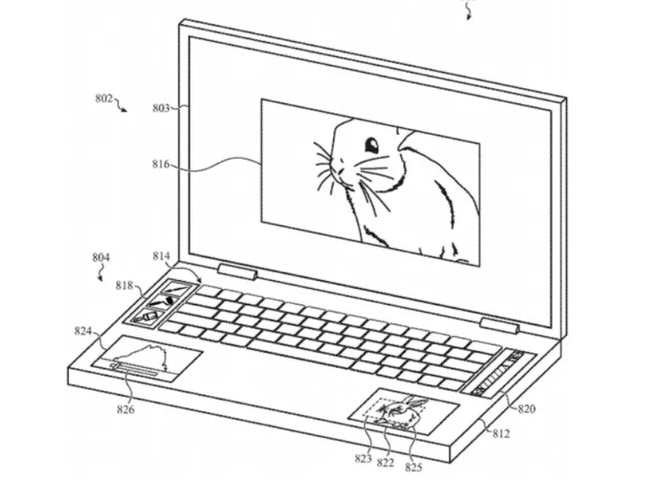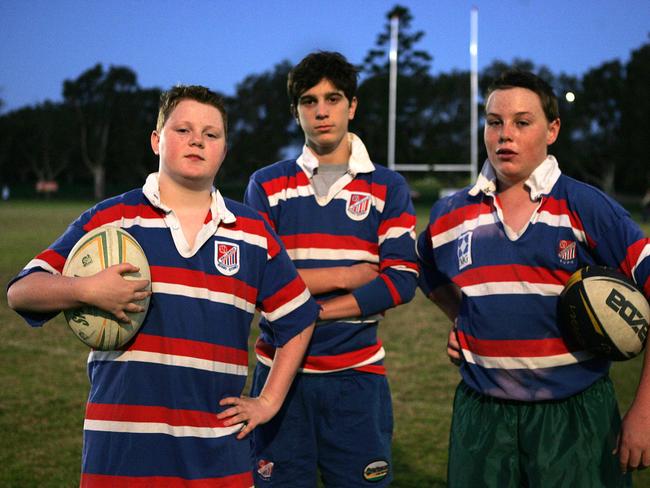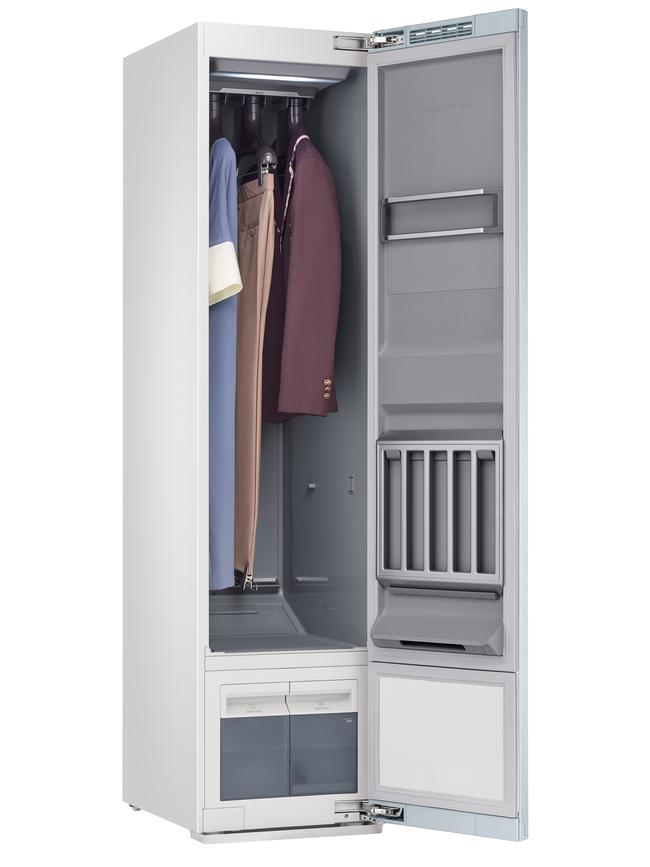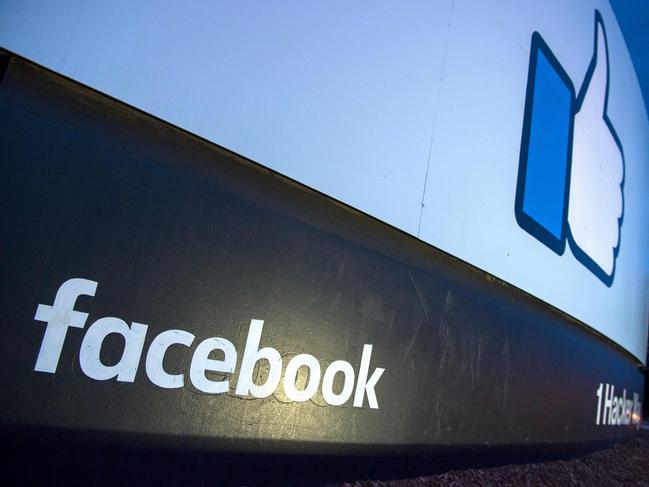Afterpay founder Nick Molnar now Australia’s youngest self-made billionaire
Afterpay’s Nick Molnar has eclipsed Canva’s Melanie Perkins as the nation’s youngest self-made billionaire.

Welcome to The Download, The Australian’s technology blog for the latest breaking tech news.
Today in tech, Facebook has admitted user data breaches, while Tesla outpaced analyst estimates for second-quarter vehicle deliveries.
David Swan 4.30pm: Upcoming Macbook ‘could have five displays’
Apple could be working on something rather unique for its next line of Macbooks, if a recent patent filing is to be believed.

A new patent filing, approved by China’s National Intellectual Property Office on June 30 2020, reveals a Macbook with five displays.
Apple describes its new technology as a “Dynamic Display Interface”, using four smaller displays that flank the typical keyboard and trackpad and help fill up empty spaces.
As with all patent filings, nothing may come of it - but a five display laptop would certainly be a different route for Apple to take with its next-generation systems.
David Swan 12.10pm: Afterpay co-founder Nick Molnar Australia’s ‘youngest self-made billionaire’
Investors have hit ‘buy now’ helped Afterpay co-founder Nick Molnar rocket to the new title of Australia’s youngest self-made billionaire.
The 30-year-old tech entrepreneur, who started his career building the family business to become Australia‘s most successful eBay jewellery store, is now worth more than $1.4bn after Afterpay’s shares hit new highs on Thursday.
Mr Molnar and Afterpay co-founder and chief executive Anthony Eisen each own 20.5 million shares - or about 8.5 per cent - in the buy now, pay later provider.
Afterpay has surged in recent weeks following a new “deep and long-term business partnership” with Chinese tech giant Tencent, which recently emerged with a 5 per cent share in the Australian company.
Mr Molnar has eclipsed fellow billionaire 32-year-old Melanie Perkins, who became one of Australia’s three wealthiest women just last week after her technology sensation Canva doubled its value after its latest big capital raising.
Read more in The List, Australia’s richest 250.

Canva raised $US60m in its latest investor round, reportedly giving it a $US6bn ($8.77bn) valuation.
Perkins founded the digital graphics business with fiance Cliff Obrecht in 2014. The firm has since raised more than $400m from investors, giving the private company – which has its headquarters in inner Sydney – a big increase in valuation each time.
The duo - who became billionaires at 31 - are now likely to hold a stake worth more than $2.5bn.
Meanwhile Atlassian duo Mike Cannon-Brookes and Scott Farquhar, who are celebrating their 40th birthdays this year, have also had a big run.
Investors have marked up the company, best known for its Jira and Confluence collaboration software products, as it has benefited from the rising demand for tools and programs to work from home during the pandemic.
Atlassian shares are sitting at $US190.08, close to its all-time high of $US191.32, giving Mr Cannon-Brookes and Mr Farquhar paper wealth of about $17.5bn each just for their stock holdings.
Additional reporting: John Stensholt
Chris Griffith 10.20am: Samsung launches its magic cleaning cupboard - AirDresser
Samsung has launched its AirDresser clothes sanitiser in Australia for a recommended $3999.
That’s bigger than most people’s dry cleaning bill but your clothes get to be processed at home in what is a narrow cupboard. You simply hang your gear up.

Clothes undergo several treatments. First they are hit with a stream of air. Then they are hit with high pressure steam. Samsung says this helps remove germs, allergens and dust.
It’s not dry cleaning nor is it washing. This magic cupboard is more about extending the wearability of your coat, trousers and shirts between washes. Samsung says as much – “ … thus allowing users to extend wear of their favourite clothes”. Personally, I wouldn’t recommend wearing the same shirt for a week.
The germaphobe that I have become thanks to COVID-19 suggests I wouldn’t place too much faith into the AirDresser killing germs but you should get rid of dust and odours caused by sweat, tobacco, cooking and even that dry cleaning smell.
After being blasted with air and steam, Samsung says the AirDresser uses “heat pump drying” that dries clothes at a low temperature while minimising heat damage and shrinkage. So presumably your expensive Luigi Borrelli shirts won’t morph from XXL when you first hang them up to XS after Samsung’s mystical air and steam treatment. Samsung says the treatment also reduces wrinkles – that could be useful if it means less ironing.
Uhm! Reduces wrinkles – maybe I should hop into the AirDresser myself.
Samsung says AirDresser has built in artificial intelligence to select the right treatment cycle for the fabric.
9.45am: ‘Jaw-dropping’ second quarter sends Tesla soaring
Tesla outpaced analyst estimates for second-quarter vehicle deliveries on Thursday, defying a trend of plummeting sales in the wider auto industry as coronavirus-linked lockdown orders kept shoppers at home, and sending its shares up 8 per cent.
The unexpected delivery numbers come a day after Tesla became the highest-valued automaker, surpassing the market capitalisation of former frontrunner Toyota.
The rally on Thursday further widens Tesla’s lead over legacy automakers as investors grow confident in its ability to define the industry’s electric and software-driven future.
Shares surged by about $US85 in early trading to $1,204.
Analysts said the solid delivery numbers heightened expectations for a profitable second quarter, which would mark the first time in Tesla’s history that it would report four consecutive quarters of profit.
“A 90k delivery number in this COVID lockdown environment is a jaw dropper,” Wedbush analyst Daniel Ives said in a note.
Chris Griffith 8.30am: Facebook admits user data leaks
Facebook has admitted to a massive data leak where user information was supplied to thousands of developers months after users stopped using their apps. The data could include a person’s name, sex, email address, and birthdate – information that is used to sign into apps.

Facebook has made the admission about the data sent to about 5000 developers, after examining months of data.
“From the last several months of data we have available, we currently estimate this issue enabled approximately 5,000 developers to continue receiving information — for example, language or gender — beyond 90 days of inactivity as recognised by our systems,” says Facebook VP of Platform Partnerships, Konstantinos Papamiltiadis in a blog post.
Facebook says it’s policy allows app developers to receive updated user login information for up to 90 days after the app becomes inactive.
“In 2014, we introduced more granular controls for people to decide which non-public information — such as their email address or their birthdate — to share when they used Facebook to sign into apps,” says Papamiltiadis. “Later, in 2018, we announced that we would automatically expire an app’s ability to receive any updates to this information if our systems didn’t recognise a person as having used the app within the last 90 days,” he says.
“But recently, we discovered that in some instances apps continued to receive the data that people had previously authorised even if it appeared they hadn’t used the app in the last 90 days.
“We currently estimate this issue enabled approximately 5,000 developers to continue receiving information — for example, language or gender — beyond 90 days of inactivity as recognised by our systems. We haven’t seen evidence that this issue resulted in sharing information that was inconsistent with the permissions people gave when they logged in using Facebook.”
He says Facebook fixed the issue the day after the data leak was discovered. He says the company had introducing new Platform Terms and Developer Policies that limit the information developers can share with third parties without explicit consent from people, and strengthen data security requirements.



To join the conversation, please log in. Don't have an account? Register
Join the conversation, you are commenting as Logout